
"The Tyhume River, flowing from the forested Amathole Mountains in South Africa’s Eastern Cape, gives its name to a valley of 20 villages on communal land. Much of the land is being used for livestock, as crop production has declined over the years. This land is under the custodianship of traditional leaders.
The valley is typical of South Africa’s communal land: affected by soil erosion, bush encroachment and water scarcity.
About a third (more than 17 million) of South Africans live on communal land, which makes up about 13% of all land in the country. The 2017 Communal Land Tenure Bill defines communal land as “owned, occupied or used by members of a community subject to shared rules or norms and customs”. It can also be owned by the state.
This land can benefit rural communities by providing ecosystem goods and services, such as shelter, water, fuel/wood, food and cultural amenities. But natural processes and human activity can transform the land.
Unmonitored and poorly managed land changes can trigger soil erosion, overgrazing, loss of biodiversity and water scarcity. In South Africa, communal land is considered to be more degraded than privately owned land. This can negatively affect the livelihoods of people who derive ecosystem services from it.
Common indicators and causes of land degradation are generally understood. But less is known about how people living in communal lands interpret land changes and their impact. It’s unclear what they perceive as land degradation or which kinds of land changes matter most to them. This helps explain the lack of sound policies and practical strategies to rehabilitate land.
Denne historien er fra March 08, 2024-utgaven av Farmer's Weekly.
Start din 7-dagers gratis prøveperiode på Magzter GOLD for å få tilgang til tusenvis av utvalgte premiumhistorier og 9000+ magasiner og aviser.
Allerede abonnent ? Logg på
Denne historien er fra March 08, 2024-utgaven av Farmer's Weekly.
Start din 7-dagers gratis prøveperiode på Magzter GOLD for å få tilgang til tusenvis av utvalgte premiumhistorier og 9000+ magasiner og aviser.
Allerede abonnent? Logg på
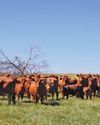
The genetically unique Senepol: ideal for beef production in Southern Africa
Since its arrival in South Africa in 2001, the Senepol has become a strong contender in the country's beef cattle arena. Tiekie Muller, owner of the Nooitgedacht Senepol stud, spoke to Annelie Coleman about how the growing number of Senepol stud breeders underpins the value of the breed under exacting African conditions.

Microwave mango and granadilla cheesecake
This delicious mango fridge tart is so easy to make, perfect when you want a quick yet indulgent dessert (it only takes 25 minutes to whip up). The fruit’s gorgeous colour and fragrance are maximised.
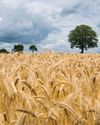
Global outlook for wheat in 2024/25
In its latest estimate, the International Grains Council has adjusted global wheat production for the coming season due to poorer-than-expected harvests in the EU. However, global supplies remain strong, while global consumption is expected to increase to reach about 804 million tons. Janine Ryan reports.
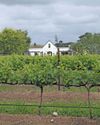
From fallow land to award-winning wines: the Newstead story
Newstead Lund Family Vineyards, a relatively new wine estate, has established itself as one of the best producers of sparkling wine in South Africa. Owners Doug and Sue Lund spoke to Glenneis Kriel about their production philosophy, rise to success, and possible expansion plans.

Fact file of fungal diseases in wheat
Wheat is a significant crop, and like other crops, is susceptible to a range of infections. Here, we provide information on the most important fungal diseases that affect wheat.
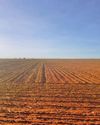
Soil preparation for wheat and other cereals
For seed to germinate and plants to grow, soil often needs to be prepared. The manner in which it is done depends on the type of soil, the organic matter and moisture it contains, the crop to be planted, as well as the previous crop that was planted in the field. Magda du Toit spoke to cereal experts and farmers for guidance.

The origin of the Bonsmara
The Breed of the Month for March is the Bonsmara. In this first article, we take a look at the man behind this popular cattle breed, as well as how it was developed.

The Southern Sun Cape Sun hotel is once again a destination of choice
While some of its contemporaries have suffered from inner-city neglect, the Southern Sun Cape Sun hotel has bounced back in elegance and style, writes Brian Berkman.

Age catches up with the Nissan Navara
The Navara line-up was increased last year in Nissan's effort to win back market share. The Citizen's Mark Jones sampled the top-of-the-range Pro-4X to see how the double cab compares with modern bakkies.
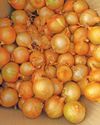
Growing onion sets
Bill Kerr discusses what onion sets are, and how and when to produce them to obtain the maximum financial benefit.